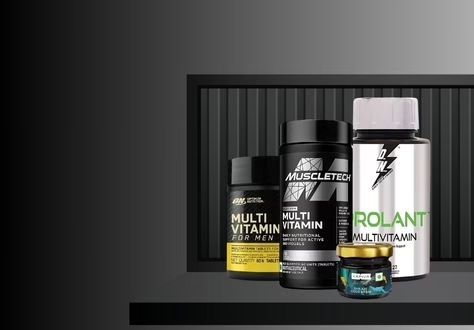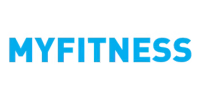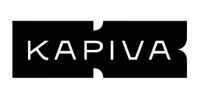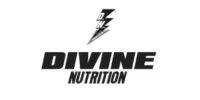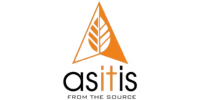Top 5 Supplements For Beginner

Starting your fitness journey is exciting, but also filled with questions — especially when it comes to supplements. With hundreds of products on the market, how do you know which ones are actually worth taking? Whether your goal is building muscle, losing fat, or simply improving your overall health, the right supplements can support your progress when used correctly.
In this guide, we’ll simplify things for you. These top 5 supplements are beginner-friendly, safe, and effective when combined with a proper diet and workout plan.
1. Whey Protein – The Building Block of Muscle
Why it’s important:
Protein is essential for muscle repair and growth. If you’re not getting enough protein from your diet, your body will struggle to recover from workouts — leading to fatigue, poor performance, and minimal results.
What is whey protein?
Whey is a fast-digesting protein derived from milk. It contains all 9 essential amino acids, making it a complete protein. Whey is especially popular among gym-goers because it’s easy to digest, quick to prepare, and supports lean muscle development.
When to take it:
- Right after your workout (within 30 minutes)
- Or as a meal replacement/snack during the day
How to use:
Mix 1 scoop (20-25g protein) with water or milk. You can also add fruits or oats for a nutritious smoothie.
Who should take it:
- Anyone struggling to meet daily protein intake (minimum 1.6g per kg of body weight)
- Vegetarians or people with limited protein sources
2. Creatine Monohydrate – For Strength & Performance
Why it’s important:
Creatine is one of the most researched and proven supplements for increasing strength, power, and muscle mass. It helps your body produce more ATP — the energy currency your muscles use during high-intensity exercises like weightlifting or sprinting.
What does it do?
- Improves workout performance
- Enhances muscle growth
- Increases water content in muscle cells, leading to better pumps
When to take it:
- Once daily, anytime (consistency is more important than timing)
How to use:
Take 3–5g of creatine monohydrate daily. No need for a loading phase if you’re just starting.
Who should take it:
- Gym beginners who want to improve lifting performance and gain muscle faster
Is it safe?
Yes. It’s natural, non-hormonal, and safe for long-term use.
3. Omega-3 Fatty Acids – For Heart & Joint Health
Why it’s important:
Omega-3s are essential fats your body can’t produce on its own. They reduce inflammation, support heart health, improve brain function, and can even aid muscle recovery.
Best source:
Fish oil supplements, ideally with high EPA & DHA content
When to take it:
- Anytime with a meal (to improve absorption)
How to use:
Look for supplements that provide at least 500–1000 mg of combined EPA & DHA per serving.
Who should take it:
- Beginners with joint discomfort or inflammation
- Anyone not eating fatty fish 2–3 times per week
Bonus: Omega-3s can also support fat loss when combined with regular exercise.
4. Multivitamins – Fill Nutritional Gaps
Why it’s important:
Even with a balanced diet, it’s hard to get 100% of the vitamins and minerals your body needs daily. A high-quality multivitamin acts like a nutritional insurance policy, supporting everything from energy levels to immune function.
Common deficiencies it covers:
- Vitamin D (especially if you don’t get sunlight)
- Vitamin B12 (especially in vegetarians)
- Zinc & Magnesium (needed for recovery and sleep)
When to take it:
- Once daily, preferably with food to improve absorption
How to use:
Follow the dosage on the label (avoid megadoses unless prescribed)
Who should take it:
- Anyone with a busy lifestyle or unbalanced diet
- Beginners who want to maintain overall health while training
Note: Don’t rely on multivitamins as a substitute for real food. Think of it as a support, not a solution.
5. Pre-Workout – For Energy & Focus
Why it’s important:
As a beginner, there will be days when you feel too tired or unmotivated to work out. A good pre-workout can give you the mental and physical boost needed to train harder and stay consistent.
What’s in it?
Most pre-workouts contain:
- Caffeine (for energy and alertness)
- Beta-alanine (for endurance)
- L-citrulline or nitric oxide boosters (for muscle pump)
When to take it:
- 15–30 minutes before your workout
How to use:
Start with half a scoop to assess tolerance, especially if you’re sensitive to caffeine.
Who should take it:
- Beginners struggling with fatigue or low motivation
- Evening gym-goers should avoid high-caffeine formulas to prevent sleep issues
Caution: Don’t become dependent on it. Use on intense training days only.
Final Thoughts: What to Remember as a Beginner
While supplements can support your progress, they should never replace a balanced diet, sleep, and training consistency. Focus on:
- Eating enough whole foods
- Sleeping 7–8 hours a night
- Training with proper form and progression
- Staying hydrated
Supplements are there to enhance, not replace, the basics.
Quick Recap: The Top 5 Beginner-Friendly Supplements
| Supplement | Key Benefits | Best Time to Take |
|---|---|---|
| Whey Protein | Muscle recovery & growth | Post-workout or as snack |
| Creatine | Strength & muscle gain | Anytime (daily) |
| Omega-3 | Heart, brain & joint health | With meals |
| Multivitamins | Fill nutrient gaps | With breakfast |
| Pre-Workout | Energy & motivation | 20–30 min before workout |
Final Advice:
Start slow. Try 1 or 2 supplements at a time, track how your body responds, and adjust as needed. You don’t need to take everything at once.
If you’re buying supplements, always choose trusted brands with transparent ingredient lists and certifications for quality. Check reviews and avoid products with proprietary blends hiding actual dosages.
Your fitness journey is a marathon — not a sprint. Use supplements wisely, stay consistent, and you’ll see real, lasting results.


